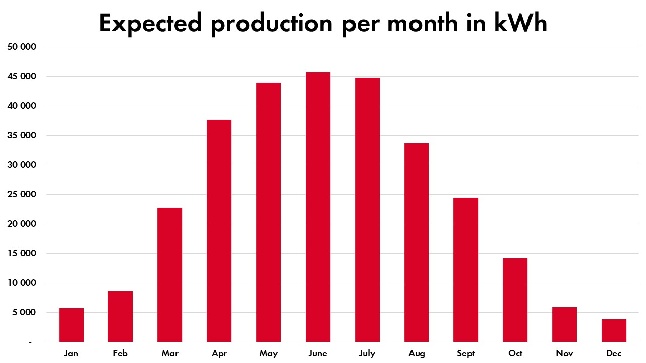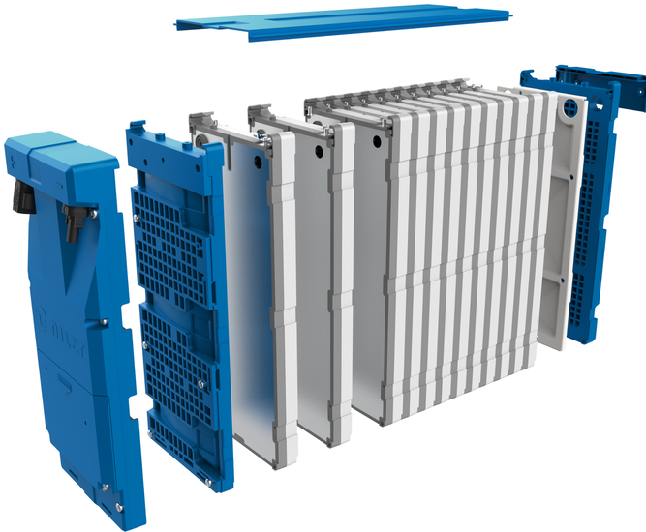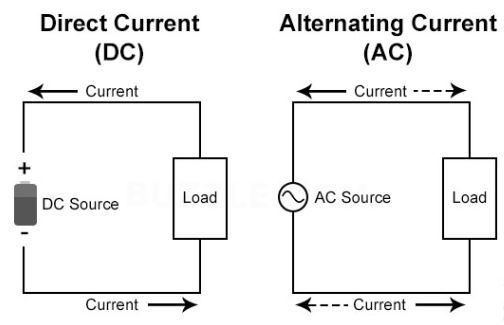100% Energy-neutral car park

Veerkaden The Hague - Self-sufficient for energy with solar panels and battery storage. Green power for LED Lighting & Car Charging
Veerkaden - 100% energy-neutral car park
Q-Park is upgrading and transforming the Veerkaden car park in The Hague, the Netherlands, to be 100% energy-neutral. The transformation deploys state of the art technology and means the parking facility will be sustainable and future-proof.
The upgrade and transformation will be complete and fully operational in Q4 2019.

The energy-neutral parking facility will help Q-Park reduce its overall CO2 per parking space and contributes to meeting the Paris 2016 UN climate change commitments, the Energy Efficiency Directive (EED) from which the ISO 50001 energy management standard is derived. Q-Park Netherlands and Q-Park Germany both have multisite ISO 50001 certificates.
Substantial renovation
Veerkaden required substantial renovation of its facade, parking deck and electrical installations to bring it in line with Q-Park’s updated functional quality standards and to meet changing requirements regarding energy consumption, e-charging and CO2 footprint.
Q-Park has taken this opportunity to not only refurbish the visible and aesthetic aspects of the car park, but as the building’s major installations, including the wiring, needed to be replaced, Q-Park decided to go much further and equip the parking facility with the means to be self-sufficient for energy.
Government subsidy was available for this extensive project, meaning the investment is expected to pay for itself within 7 years, about half the usual return on investment period.
To achieve energy self-sufficiency, the renovation includes:
PV panels
Nilar EC Batteries
DC LED lighting
Smart energy hub
Complete rewiring
PV panels
The top deck of the parking facility will soon be the home for 1,042 solar PV1 panels, installed in east-west orientation for maximum efficiency.
Converting the top parking deck to an energy producing floor was, in this case, an obvious decision as it was hardly ever used. Due to weather conditions and the mechanical load it needed frequent maintenance with complex materials, so installing the solar panels here is a win-win.
The installation includes four inverters and has a maximum capacity of 339 kWp2. The annual estimated electricity production is 392,000 kWh3.

Nilar EC Batteries

Q-Park has chosen to build the largest possible installation in order to maximise the electricity generating capacity. This means that the facility must be able to store much of the electricity generated on location as there is a cap on the amount of power an installation may give back to the national grid.
Q-Park has selected environmentally friendly nickel metal hydride (NiMH) Nilar batteries to store the power generated by the PV panels for use at a later point in time. The installation is calculated to provide enough electricity to power the parking facility, including the e-charging stations. Electric cars can be fast charged (DC charging) and charging at night means using the solar power generated during the day.
The Nilar EC batteries:
Are manufactured with the minimum of hard-to-recover raw materials.
Do not contain cadmium, mercury or lead.
At the end of their life-cycle, the nickel can be actively recycled and reused.
Last for at least 20 years.
Are safer than many other solutions available because the batteries contain a water-based non-flammable electrolyte.
The newly patented Nilar cooling ensures stable temperatures throughout the entire battery pack and decreases the risk of overheating.
DC LED lighting

Low-energy high-performance LED lighting will be the standard in most of Q-Park's owned or long-leased parking facilities by the end of 2019, Veerkaden is no exception.
However, the difference here is that the LEDs are DC4 powered directly from the Nilar battery packs. This is an enormous saving because the DC power generated by the PV panels does not have to be inverted to AC power. In most cases, LED lighting installations have transformers to convert AC power from the grid to DC to power the LEDs.
Q-Park has estimated that an additional annual saving of approximately EUR 10,000 will be realised with the DC LED lighting solution.
Click here for further information about the Q-Park LED transformation project and here for more details about Q-Park's lighting standards.
Complete rewiring
The car park has been completely rewired and also equipped with new fuse boxes. There is a DC circuit running from the panels through the smart hub to the battery pack and LED lighting. This also feeds the e-charging stations.
There is a separate AC circuit for the regular equipment and installations, such as the lifts, barriers and payment machines. Creating a separate DC circuit did not require considerable additional investment as the age of the car park meant that all the wiring had to be replaced for safety reasons.
Smart energy hub
The Veerkaden parking facility is equipped with a bi-directional smart energy hub. This is designed to manage the power generated by the PV panels on the roof and to direct it to the battery pack, DC LED lighting, and e-charging stations. It also provides AC power for the rest of the car park equipment, such as the lifts and barriers.
If the battery packs are fully charged, the hub will convert the power generated by the PV panels to AC and channel it to the public grid.
Furthermore, in the event that the battery pack cannot meet electricity demand in the parking facility at any point, the smart energy hub will draw power from the grid. In this way it optimises energy flow and, using patented power equalisation technology, balances the parking facility’s power consumption. This also minimises the parking facility’s dependence on the grid.
The entire installation, in combination with the Nilar battery pack also provides a reliable peak shaving and time shifting power solution. In the event of a public grid power failure, the smart energy hub will continue to power the parking facility.

Peak shaving; the added value provided by integrating an energy storage system with a solar energy system. Source: SolarTech.
Veerkaden car park
The parking facility provides more than 800 spaces. It is ideally located for easy access from motorways and is within a convenient walking distance from the main tourist attractions and shopping areas in The Hague.
The car park was originally constructed to serve shops and department stores in the late 1970s and only minor upgrades were carried out when Q-Park acquired the facility in 1998.
With the renovation completed in 2019, this car park is ready for the next generation.

Veerkaden parking facility - 100% energy-neutral
- Photovoltaics (PV) is the conversion of light into electricity using semiconducting materials that exhibit the photovoltaic effect. A photovoltaic system employs solar modules, each comprising a number of solar cells, which generate electrical power. (source: https://en.wikipedia.org/wiki/Photovoltaics)
- kWp is the maximum calculated power output of a PV system or solar panel installation and stands for the kilowatt 'peak' of a system. This power output is calculated under a standardised test for panels across all manufacturers to ensure that values listed can be compared. (source: https://www.evoenergy.co.uk/blog/18514/what-is-a-kwpEvoEnergy)
- When the solar PV panels are operating, they will, over an hour convert the sun’s radiance into electrical energy, which is measured in kilowatt hours (kWh). PV panels with a peak power of 339kWp and which are working at maximum capacity for one hour will therefore produce 339kWh. (source: https://www.evoenergy.co.uk/blog/18514/what-is-a-kwp)
- AC & DC; Alternating Current (AC) and Direct Current (DC)
